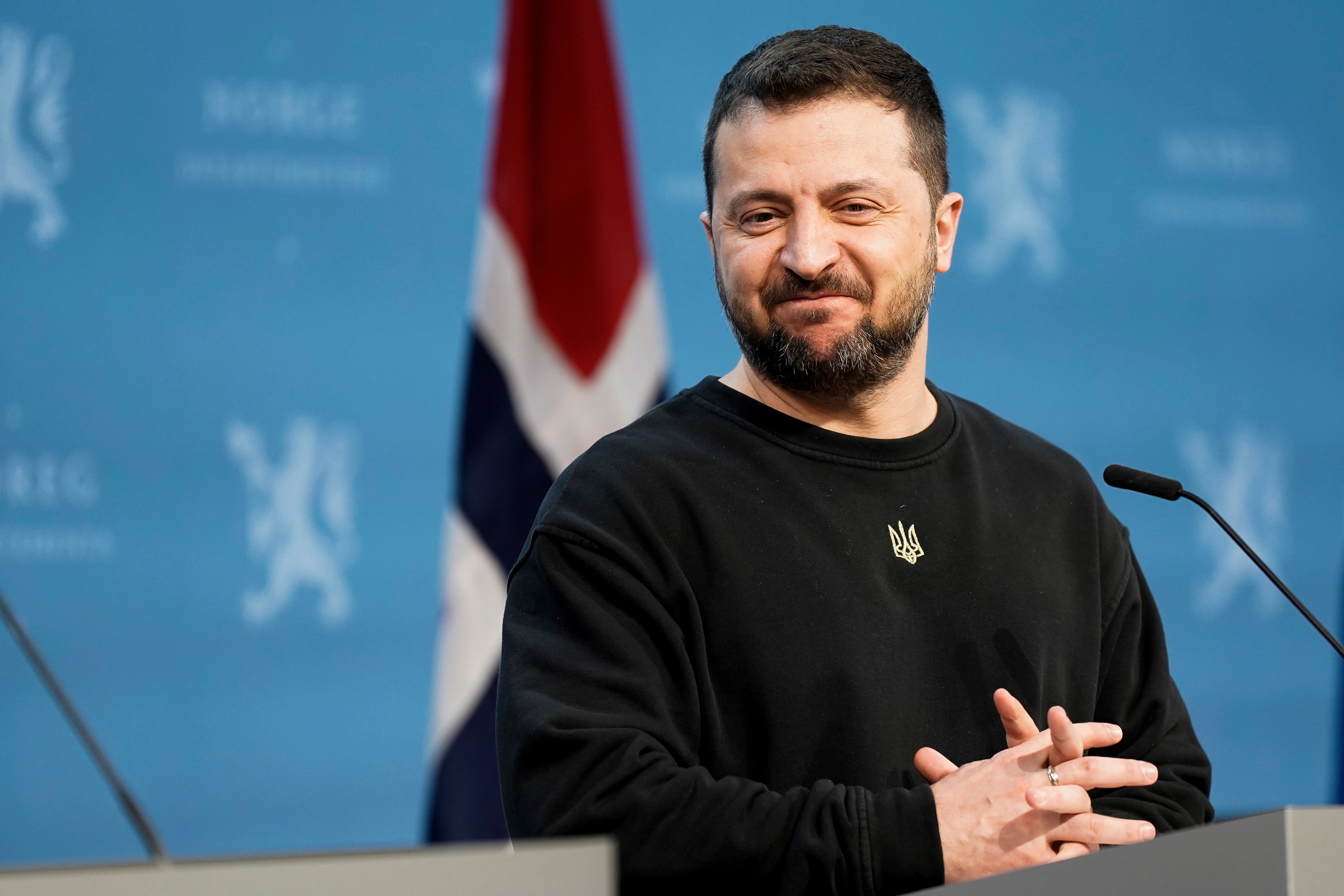A symbolic victory for Kyiv on EU membership – but the real headache over Western aid remains
Hungarian Prime Minister Viktor Orban's one-man mission to block critical European funds, mixed with a similar impasse in the US Congress leaves Ukraine with a big problem, writes Askold Krushelnycky

Ukraine’s fate in the war against Russia was in the hands of its allies on both sides of the Atlantic this week – and the result was one symbolic victory and one monumental headache.
Ukraine received a terrific morale boost when the European Union voted to begin membership talks with Kyiv at a summit in Brussels. That was a smack in the face for Russian president, Vladimir Putin, who on the same day had tried to gloat that all-important military and financial support for Ukraine was fading in the West.
The decision in Brussels came after Hungarian Prime Minister Viktor Orban left the room, taking his objections with him, while the agreement was sealed, seemingly having agreed to do so. In that way, he could say he had no part in it. Moldova was given a green light at the same time.
The EU decision is just the first step in a process that usually takes years before a country is admitted to the union. But its symbolism is immensely important for Ukrainians who declared their country’s determination to live by “European values” during mass demonstrations in 2014 and now face Putin's invasion.
The protests began after the then pro-Kremlin president, Viktor Yanukovych, ditched plans – at the last moment – for Ukraine to sign an accord establishing closer relations with the EU. Dozens were killed in clashes with police. Yanukovych fled soon to Moscow. Within weeks Russia had annexed Crimea and engineered a pro-Russian rebellion in Ukraine’s eastern Donbas region. In February 2022, a full blown invasion of Ukraine began.

However delighted Kyiv is by the EU decision, any celebrations are dampened by Orban blocking the €50 (£43bn) in aid that will help keep Ukraine's governmental budget afloat. Orban has been hostile to Ukraine since the full-blown invasion began. He has friendly relations with Putin and his county is probably the most dependent of all in Europe on Russian gas and oil. A master at manipulating populist sentiments, Orban has also claimed that the small ethnic Hungarian minority in Ukraine is being mistreated. He has provided little evidence for the accusations and the EU has said they are unfounded.
It is a fight that he will take up again in January when EU leaders meet for another summit, unless the rest of the bloc can come up with incentives to make him back down.
Orban's one-man act has been given extra jeopardy by events in Washington and the blocking of American aid by members of the US Congress. Ukraine’s President Volodymyr Zelensky has warned that the stalled aid could grow into an existential threat for Ukraine’s ability to defend itself against Russia.
US President Joe Biden, and his Democrat Party want Congressional approval to send Ukraine a $61 billion aid package - for weapons and to tide over Kyiv’s economy. But Republican Congressional members, egged on by Republican supporters of former president, Donald Trump who frequently praises Putin, have for weeks held the aid hostage to Biden agreeing to strident security measures to halt the movement of thousands of migrants and asylum seekers coming across America’s southern border with Mexico.

President Zelensky visited Washington last Tuesday and had a behind closed doors meeting with senators but was unable to break the impasse – and the chances are slim that any agreement can be reached before before the end of the year,
America, Ukraine’s most important single ally, provides the lion's share of ammunition for its artillery, with Kyiv's forces expending thousands of rounds daily. It also provides many of the air defences that help keep out Moscow's missile and drone attacks, which have intensified in recent weeks. The Ukrainian military has said that it needs some 5,000 artillery shells daily to hold the line against Russian forces which fire many more.
One Ukrainian artillery officer with the nom-de-guerre "Atlas" said: "We only fire if we have a definite high-value target or in support of other, nearby artillery positions that are being stormed by the Russians. "
The row in Congress does not threaten Ukrainian battlefield ability immediately - its forces have aid coming in from other western allies and stockpiles likely to feed their guns for some weeks.
But the situation has bolstered Putin who, despite disastrous setbacks after his invasion, has repeatedly maintained that western backing for Kyiv would eventually ebb as “Ukraine fatigue” set in.






Join our commenting forum
Join thought-provoking conversations, follow other Independent readers and see their replies
4Comments